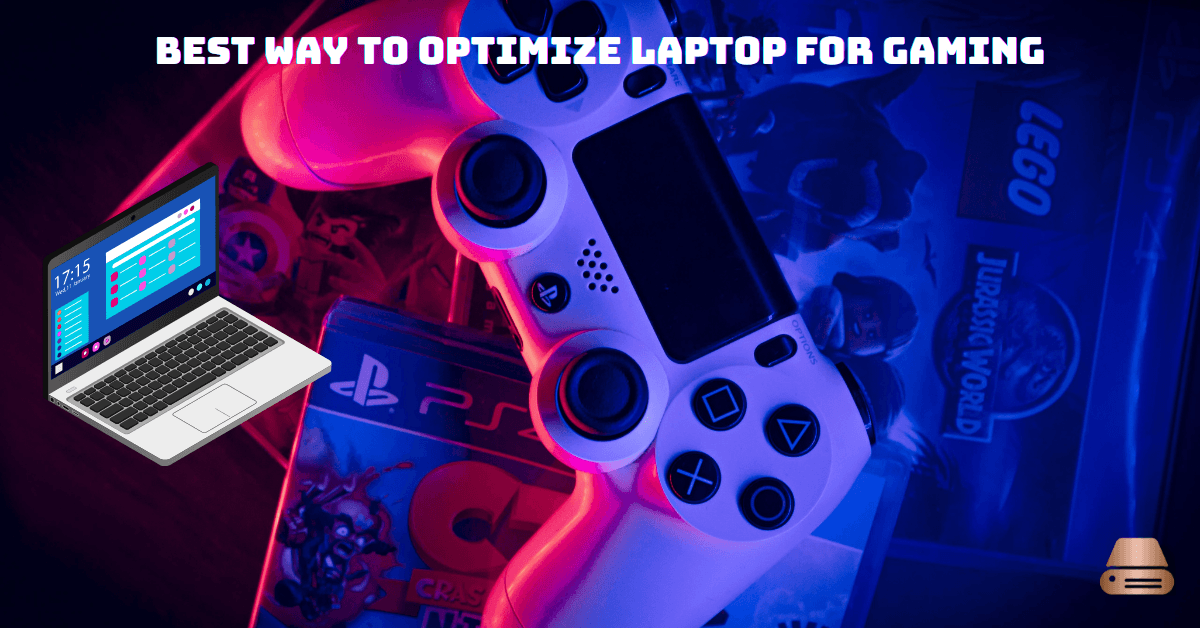Gaming on a laptop can be a thrilling experience, but achieving peak performance often requires fine-tuning your system. Unlike desktops, laptops have inherent constraints like compact design and limited cooling, making optimization essential for smooth gameplay. In this guide, we’ll walk you through the best way to Optimize Laptop for Gaming. Whether you’re a casual gamer or a competitive enthusiast, these tips will ensure your device performs at its best.
Understanding Your Laptop’s Specifications
The first step to optimization is understanding what you’re working with. Your laptop’s performance hinges on its hardware capabilities.
Checking Your Laptop’s Hardware
- CPU (Processor): This is your laptop’s brain. High clock speeds and multiple cores significantly impact gaming performance.
- GPU (Graphics Card): A dedicated GPU like NVIDIA or AMD enhances visual performance.
- RAM (Memory): 8GB is the minimum for gaming, but 16GB is recommended for seamless multitasking.
- Storage: Solid-state drives (SSDs) provide faster load times than traditional hard drives.
Identifying Bottlenecks
- Use tools like CPU-Z or Speccy to monitor your system’s hardware.
- Determine which components are underperforming and prioritize upgrades if possible.
Updating Drivers and Software
Outdated drivers can cause crashes and performance issues. Regular updates ensure compatibility with the latest games.
Updating GPU Drivers
- Visit the official website of your GPU manufacturer (e.g., NVIDIA or AMD).
- Download and install the latest driver version.
- Use software like GeForce Experience or Radeon Software for automated updates.
Updating Other Drivers
- Update the chipset, audio, and network drivers to avoid lag or crashes.
- Utilize Windows Update for system-wide patches.
Keeping the Operating System Up-to-Date
An updated operating system provides stability and security enhancements. For gamers, this often includes performance tweaks.
- Enable automatic updates in Windows settings.
- Ensure that you have the latest version of DirectX for better graphics rendering.
Optimizing Power Settings
Performance and power consumption are tightly linked on laptops. Adjusting power settings can significantly impact gaming.
Configuring Power Plans
- Access Power Options via the Control Panel or Settings.
- Select the High-Performance plan for maximum output.
- On gaming laptops, some manufacturers provide custom power modes optimized for gaming.
Enhancing Cooling and Airflow
Overheating can throttle your laptop’s performance and shorten its lifespan. Maintaining efficient cooling is crucial.
Cleaning Vents and Fans
- Regularly clean dust from vents and fans with compressed air.
- Avoid placing your laptop on soft surfaces that block airflow.
Using Cooling Pads
- Invest in a quality cooling pad to improve airflow.
- Ensure the pad is compatible with your laptop’s size and design.
Monitoring Temperature
- Use software like HWMonitor or MSI Afterburner to keep track of CPU and GPU temperatures.
- Aim to keep temperatures below 85°C during intense gaming.
Optimizing Graphics Settings for Gaming
Graphics settings directly affect performance and visual quality.
Adjusting In-Game Settings
- Lower resolution and texture quality to improve frame rates.
- Disable unnecessary features like motion blur or shadows.
Balancing Performance and Quality
- Use preset profiles like Low, Medium, or High based on your laptop’s capabilities.
- Experiment with custom settings for the best balance.
Managing Background Applications
Background tasks consume system resources, leading to lags and stuttering.
Closing Unnecessary Processes
- Open Task Manager (Ctrl + Shift + Esc) to identify resource-heavy applications.
- End tasks that aren’t required during gaming.
Disabling Startup Programs
- Prevent unnecessary programs from launching at startup using Task Manager or msconfig.
Upgrading Essential Hardware Components
Upgrades can breathe new life into your laptop, especially if it’s struggling to handle modern games.
Upgrading RAM
- Increasing RAM improves multitasking and game performance.
- Check your laptop’s maximum supported RAM before upgrading.
Switching to an SSD
- SSDs drastically reduce loading times and improve system responsiveness.
- Consider an NVMe SSD for faster read and write speeds.
Replacing Thermal Paste
- If your laptop is overheating, replacing old thermal paste can improve cooling efficiency.
Utilizing Game Optimization Software
Software tools can automate several optimization tasks.
Popular Tools
- Razer Cortex: Frees up RAM and resources for gaming.
- GeForce Experience: Automatically optimizes in-game settings.
- MSI Dragon Center: Tailored for MSI laptops, it offers a comprehensive suite of gaming features.
Customizing Gaming Settings on Windows
Windows offers several features designed to enhance gaming.
Using Game Mode
- Enable Game Mode from Windows Settings to allocate resources to active games.
Adjusting Performance Options
- Disable visual effects by accessing Performance Options in System Properties.
- Prioritize programs over background services.
Improving Network Settings for Online Gaming
A stable internet connection is vital for online gaming.
Reducing Latency
- Use a wired Ethernet connection whenever possible.
- Optimize router settings for low-latency gaming.
Using VPNs for Gaming
- VPNs can reduce ping in certain regions.
- Choose a gaming-optimized VPN for the best results.
Backing Up Your System Regularly
Before making significant changes, back up your data to avoid potential loss.
Creating Restore Points
- Use Windows System Restore to create checkpoints before major updates or optimizations.
Conclusion For Best Way to Optimize Laptop for Gaming
Optimizing your laptop for gaming involves a combination of software tweaks, hardware upgrades, and regular maintenance. By implementing these strategies, you can enjoy a seamless gaming experience without compromising your system’s longevity. Remember, consistency is key—keep your laptop updated, clean, and optimized to get the most out of your gaming adventures.
FAQs: About Optimize Laptop for Gaming
Should I upgrade to 16GB RAM for gaming?
Yes, 16GB ensures smoother gameplay and better multitasking.
What’s the best cooling pad for laptops?
Look for adjustable cooling pads with multiple fans and high airflow ratings.
How do I reduce game load times?
Switch to an SSD for faster storage performance.
Can a VPN improve gaming performance?
Yes, it can reduce latency in certain cases but may add a slight overhead.
